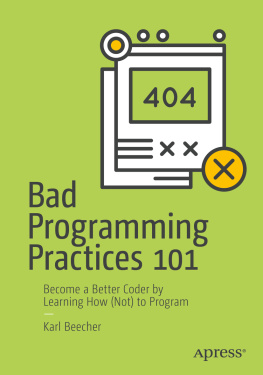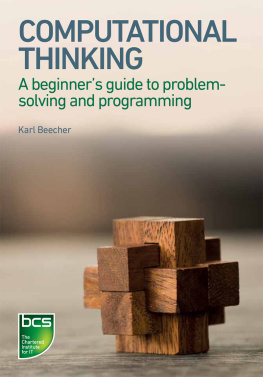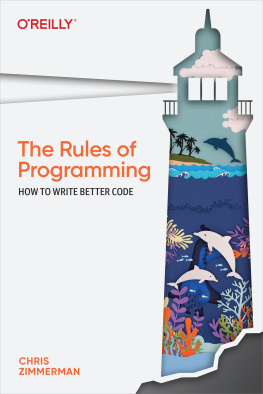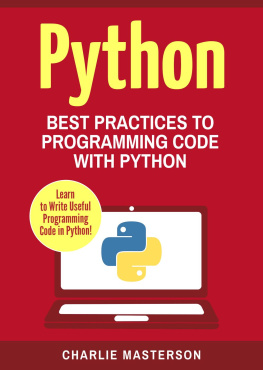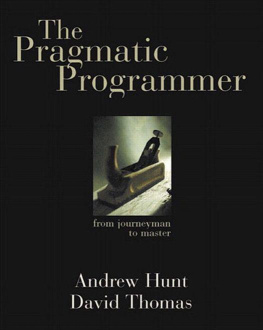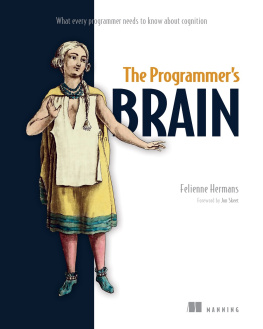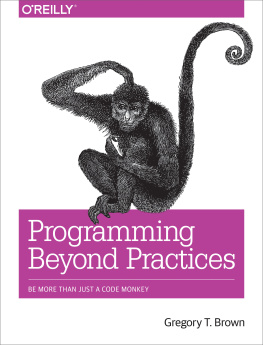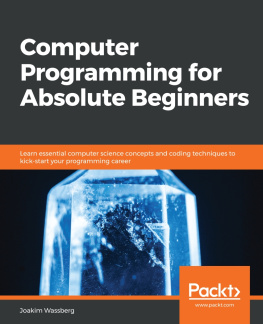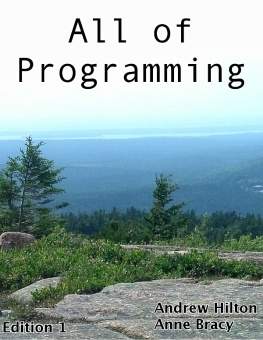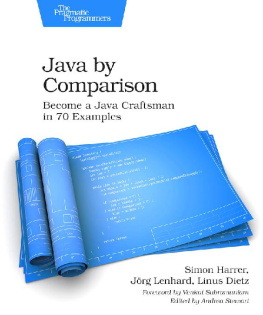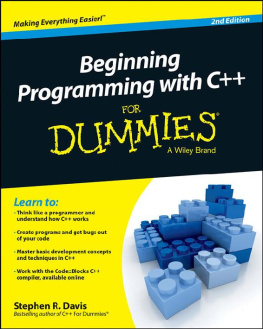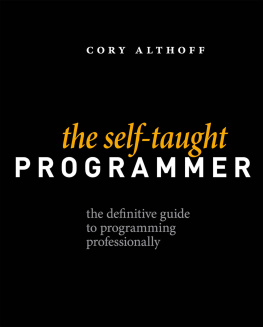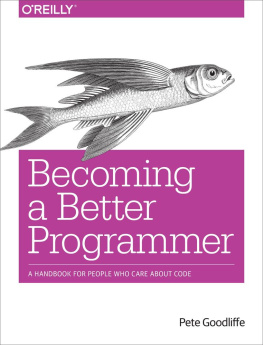Karl Beecher - Bad Programming Practices 101: Become a Better Coder by Learning How (Not) to Program
Here you can read online Karl Beecher - Bad Programming Practices 101: Become a Better Coder by Learning How (Not) to Program full text of the book (entire story) in english for free. Download pdf and epub, get meaning, cover and reviews about this ebook. year: 2018, publisher: Apress, genre: Computer. Description of the work, (preface) as well as reviews are available. Best literature library LitArk.com created for fans of good reading and offers a wide selection of genres:
Romance novel
Science fiction
Adventure
Detective
Science
History
Home and family
Prose
Art
Politics
Computer
Non-fiction
Religion
Business
Children
Humor
Choose a favorite category and find really read worthwhile books. Enjoy immersion in the world of imagination, feel the emotions of the characters or learn something new for yourself, make an fascinating discovery.
- Book:Bad Programming Practices 101: Become a Better Coder by Learning How (Not) to Program
- Author:
- Publisher:Apress
- Genre:
- Year:2018
- Rating:5 / 5
- Favourites:Add to favourites
- Your mark:
Bad Programming Practices 101: Become a Better Coder by Learning How (Not) to Program: summary, description and annotation
We offer to read an annotation, description, summary or preface (depends on what the author of the book "Bad Programming Practices 101: Become a Better Coder by Learning How (Not) to Program" wrote himself). If you haven't found the necessary information about the book — write in the comments, we will try to find it.
This book takes a humorous slant on the programming practice manual by reversing the usual approach: under the pretence of teaching you how to become the worlds worst programmer who generally causes chaos, the book teaches you how to avoid the kind of bad habits that introduce bugs or cause code contributions to be rejected.
Why be a code monkey when you can be a chaos monkey? OK, so you want to become a terrible programmer. You want to write code that gets vigorously rejected in review. You look forward to reading feedback plastered in comments like WTF???. Even better, you fantasize about your bug-ridden changes sneaking through and causing untold chaos in the codebase. You want to build a reputation as someone who writes creaky, messy, error-prone garbage that frustrates your colleagues. Bad Programming Practices 101 will help you achieve that goal a whole lot quicker by teaching you an array of bad habits that will allow you to cause maximum chaos.
Alternatively, you could use this book to identify those bad habits and learn to avoid them. The bad practices are organized into topics that form the basis of programming (layout, variables, loops, modules, and so on). Its been remarked that to become a good programmer, you must first write 10,000 lines of bad code to get it all out of your system. This book is aimed at programmers who have so far written only a small portion of that. By learning about poor programming habits, you will learn good practices. In addition, you will find out the motivation behind each practice, so you can learn why it is considered good and not simply get a list of rules.
What Youll Learn
Become a better coder by learning how (not) to program
Choose your tools wisely
Think of programming as problem solving
Discover the consequences of a programs appearance and overall structure
Explain poor use of variables in programs
Avoid bad habits and common mistakes when using conditionals and loops
See how poor error-handling makes for unstable programs
Sidestep bad practices related specifically to object-oriented programming
Mitigate the effects of ineffectual and inadequate bug location and testing
Who This Book Is For
Those who have some practical programming knowledge (can program in at least one programming language), but little or no professional experience, which they would like to quickly build up. They are either still undergoing training in software development, or are at the beginning of their programming career. They have at most 1-2 years of professional experience.
Karl Beecher: author's other books
Who wrote Bad Programming Practices 101: Become a Better Coder by Learning How (Not) to Program? Find out the surname, the name of the author of the book and a list of all author's works by series.

